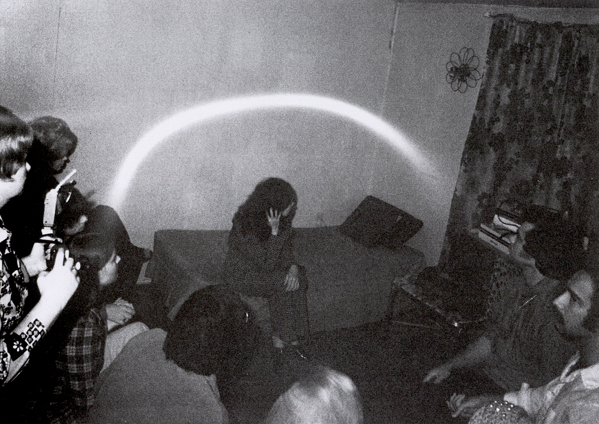Funny, but aside from the claim you quote here from Wiki, I find no evidence for that on Google anywhere. You'd think skeptics would be all over this by now, fully exploiting it to prove how paranormal activity is really just strings and wires. Otoh, I DID find that this case was thoroughly investigated when it was happening, by physicists and police and electricians and parapsychologists, with absolutely NO evidence of fraud. Wow. You'd think a nylon string attached to a light socket would be obvious to them! lol!
"In the Rosenheim case, Dr. Friedbert Karger was one of two
physicists from the Max Planck Institute who helped to investigate
perhaps the most validated poltergeist case in recorded history.
A 19 year old secretary in a law firm in Rosenheim, a small town
in southern Germany, was seemingly the unwitting cause of
much chaos in the firm, including disruption of electricity and
telephone lines, the rotation of a picture and swinging lamps
which were captured on video (which was one of the first times
any poltergeist activity has been captured on film) and strange
sounds that sounded electrical in origin were recorded. Fraud
was never proven despite intensive investigation by the
physicists, journalists and the police. The effects moved with the
young woman when she changed jobs until they finally faded out,
and Friedbert Karger's whole perspective on physics changed.
'These experiments were really a challenge to physics,' Karger
says today. 'What we saw in the Rosenheim case could be 100
per cent shown not to be explainable by known physics.' [1]. The
phenomena were witnessed by Hans Bender, the police force,
the CID, reporters, and the physicists. The claims were aired in a
documentary in 1975 in a series called "Leap in the Dark".


